Publications
Articles, publications, books, tools and multimedia features from the U.S. Institute of Peace provide the latest news, analysis, research findings, practitioner guides and reports, all related to the conflict zones and issues that are at the center of the Institute’s work to prevent and reduce violent conflict.
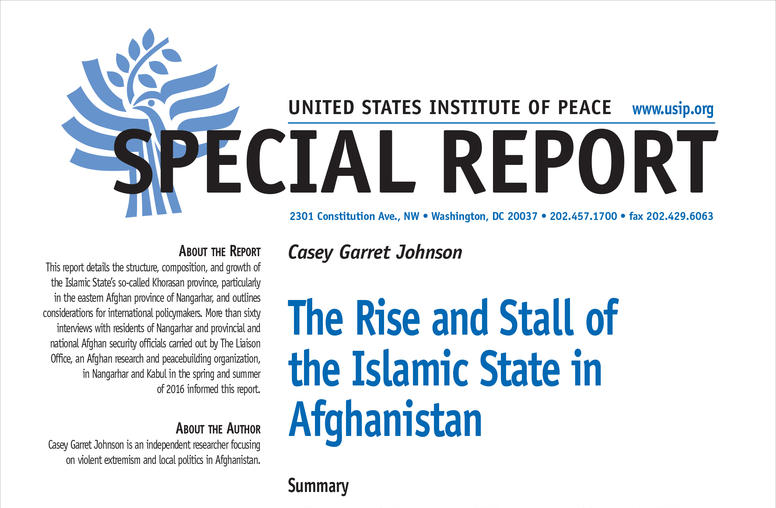
The Rise and Stall of the Islamic State in Afghanistan
This report details the structure, composition, and growth of the Islamic State’s so-called Khorasan province, particularly in the eastern Afghan province of Nangarhar, and outlines considerations for international policymakers. More than sixty interviews carried out by The Liaison Office with residents of Nangarhar and provincial and national Afghan security officials informed this report.
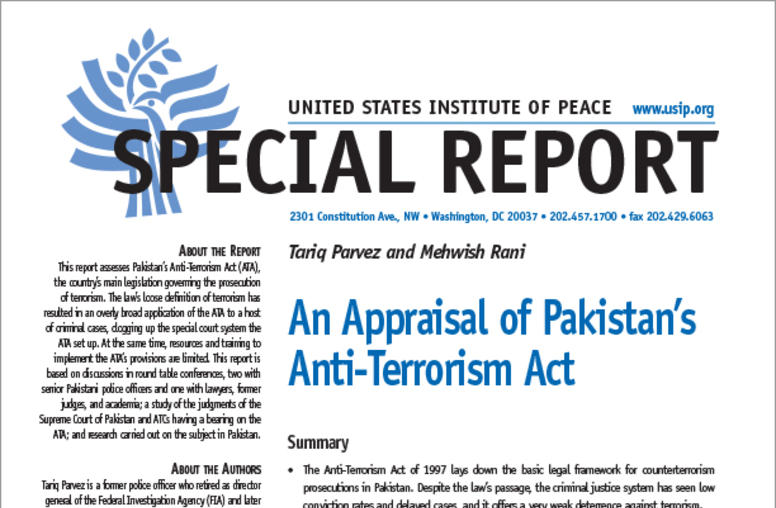
An Appraisal of Pakistan’s Anti-Terrorism Act
Pakistan passed the Anti-Terrorism Act in 1997 in response to the rising threat of terrorism within its borders. The law was designed to help law enforcement combat terrorism. Instead, conceptual difficulties within the law and procedural problems in implementing it have led to an alarmingly high number of acquittals. This report examines the weaknesses in the Anti-Terrorism Act and suggests ways to improve the law and its application to better fight terrorism in Pakistan.
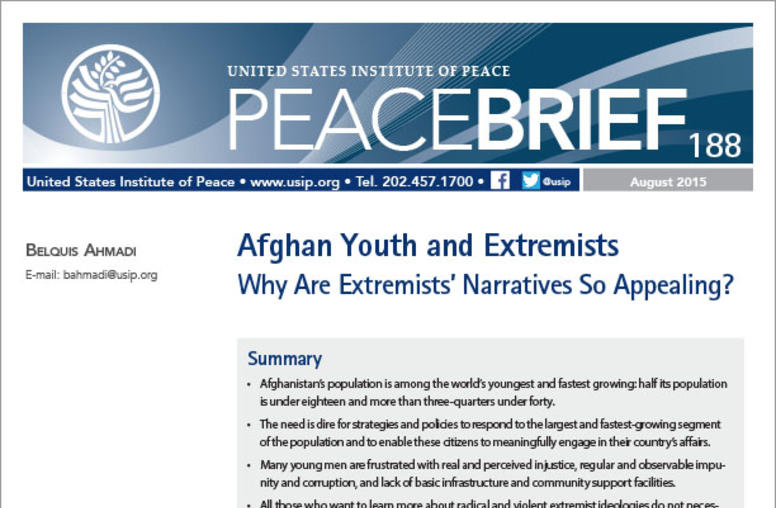
Afghan Youth and Extremists
Four decades of political instability, violent conflict, and socioeconomic crisis has had a devastating impact on Afghanistan and its citizens. As this Peace Brief explains, understanding the process of radicalization and the drivers of violent extremism is vital to designing effective counterstrategies.
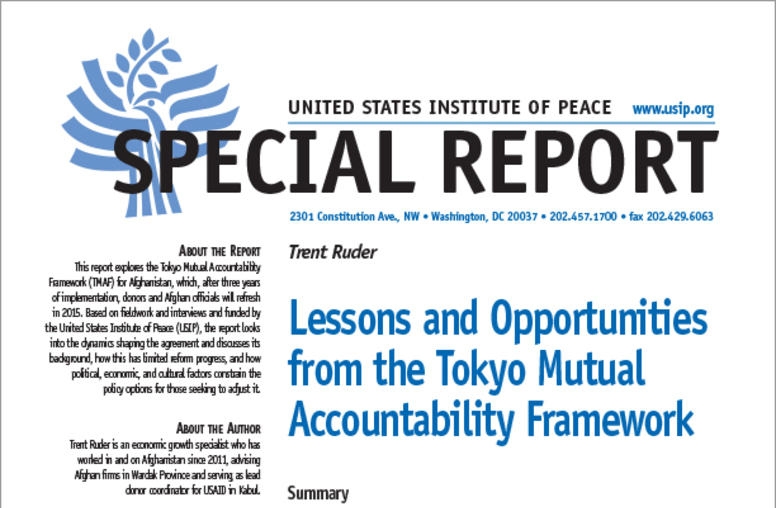
Building a Sustainable Afghanistan
Drafted in 2012, the Tokyo Mutual Accountability Framework (TMAF) provides guidelines for Afghan reform and ongoing donor support and has proved useful, but it is hobbled by political, social, financial, and bureaucratic factors. The Ghani-Abdullah unity government, inaugurated in the autumn of 2014, is looking to refresh the agreement to fit an evolving political and economic context. Policy trade-offs are inevitable, however. They raise a critical question: Is the document intended to organ...
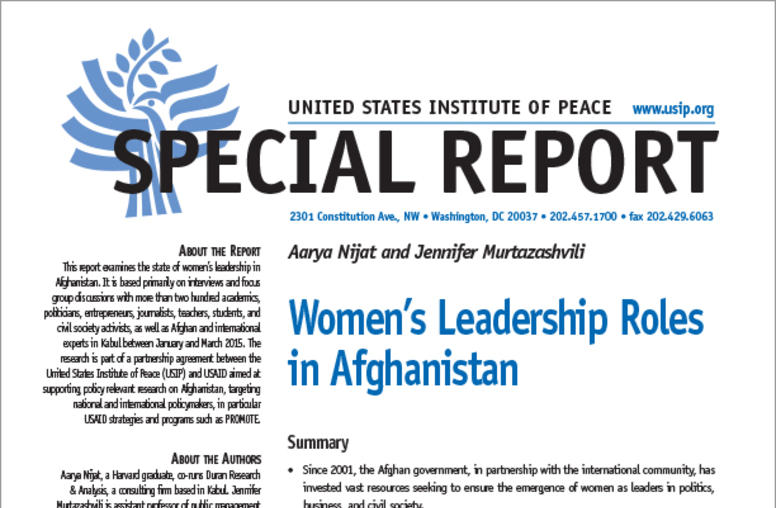
Women’s Leadership Roles in Afghanistan
In the days after September 11, the international community’s desire to “rescue” Afghan women from their social, political, and economic fate was key to mobilizing global support to topple the Taliban regime. Since then, the Afghan government and the international community have invested vast resources seeking to improve the status of women in the country, primarily through programs to support women leaders in politics, business, and civil society. Drawn on interviews and focus group discussi...
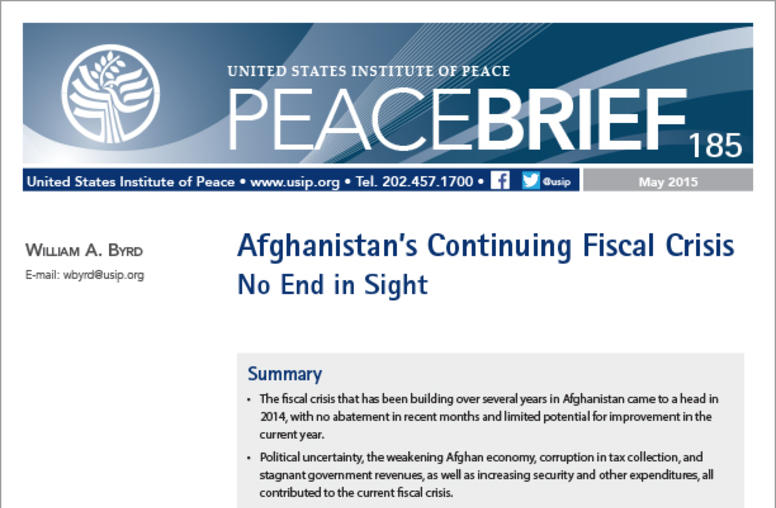
Afghanistan's Continuing Fiscal Crisis: No End In Sight
For several years, Afghanistan’s economy and public finances have worsened, culminating in a full-blown fiscal crisis in 2014. Political uncertainties, the weakening Afghan economy, corruption in tax collection, stagnant government revenues, and increasing expenditures have contributed to the current fiscal impasse. In the absence of bold actions by the Afghan government along with proactive international support to turn around the fiscal situation, the fiscal crisis and its insidious effect...
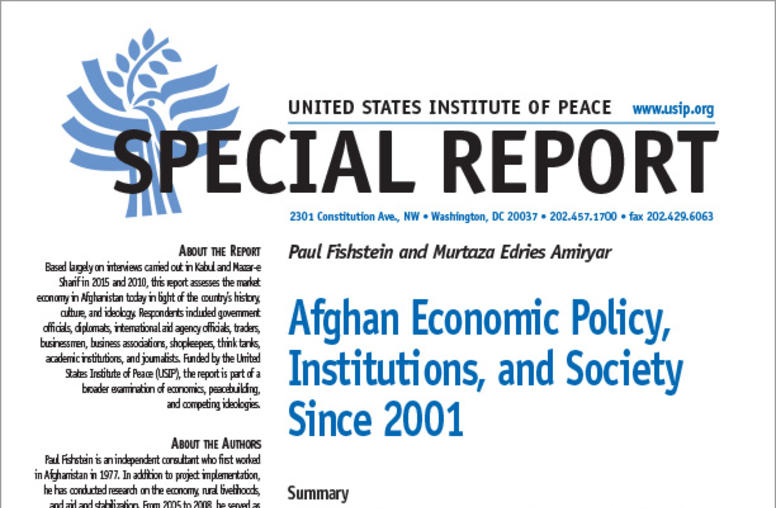
Afghan Economic Policy, Institutions and Society Since 2001
The general expectation among Afghans after the fall of the Taliban was that the state, equipped with financial resources and technical assistance from the international community, would once again take the lead in the economic sphere. Instead, Kabul adopted a market economy. The move remains controversial in some quarters. This report, derived from interviews conducted in 2015 and 2010, takes stock of the competing ideologies in Afghanistan today with respect to the economy.
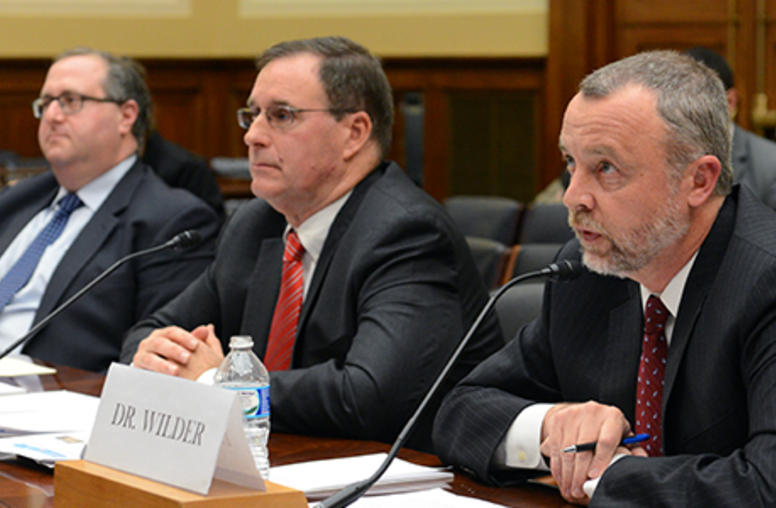
Assessing the President’s Strategy in Afghanistan
Andrew Wilder, vice president of the Asia center at USIP, testimony before the House Committee on Foreign Affairs, Subcommittee on Middle East and North Africa. More from Dr. Wilder following his testimony, "Why the U.S. Needs to Remain Engaged in Afghanistan."
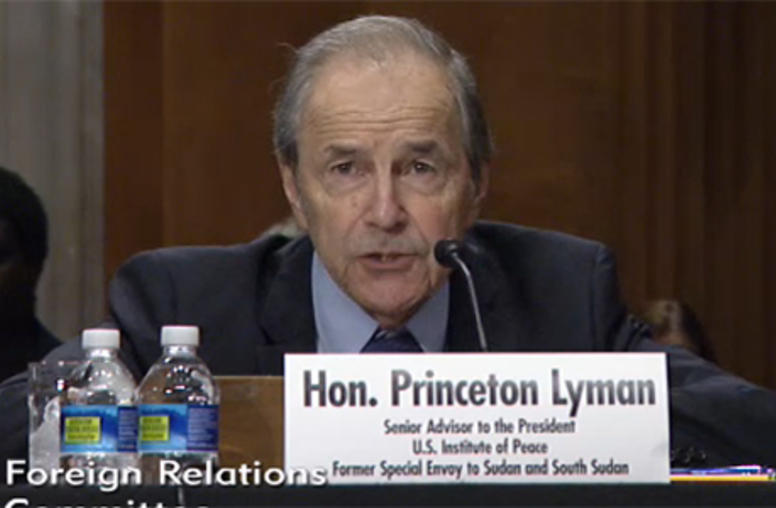
Independent South Sudan: A Failure of Leadership
Princeton N. Lyman, senior advisor to the president at USIP, testimony before the Senate Foreign Relations Committee.
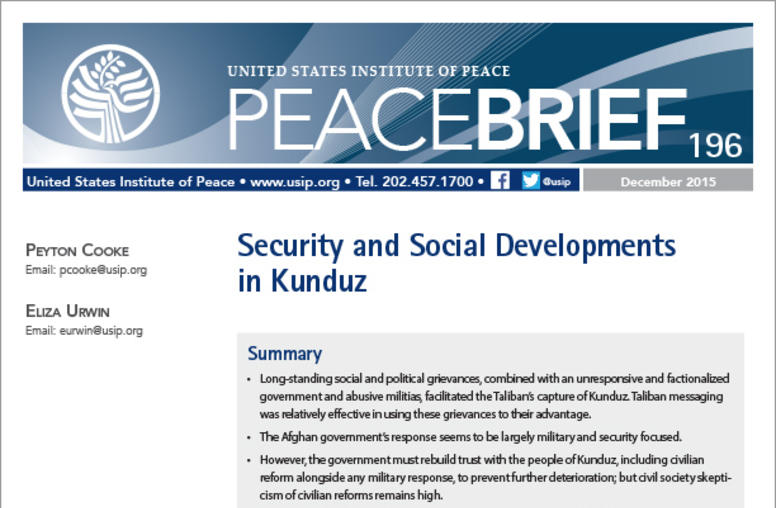
Security and Social Developments in Kunduz
Long-standing social and political grievances, combined with an unresponsive, factionalized government and abusive militias, facilitated the Taliban’s capture of Kunduz in September 2015. The fall of Kunduz raised questions regarding future political and security implications across the northeast region of Afghanistan. This Peace Brief highlights findings from interviews with a range of actors comparing what the government’s political and security response should look like and what it’s expec...